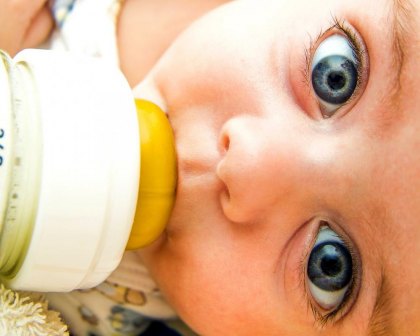Science in brief: Babies take note of anger

In two recent studies at the University of Washington's Institute for Learning & Brain Sciences, researchers found that 15-month-old infants pay close attention to the emotional reactions of adults.
In the first study, which appears in the journal Developmental Psychology, 270 babies sat on their parents’ laps and watched a researcher demonstrate how to play with various toys. Another researcher would either react in a neutral way (“That’s entertaining,”) or in a negative way using a stern voice (“That’s aggravating!”), a university news release explained.
Each baby was given a chance to play with the toy. Babies who had witnessed anger more often avoided playing with the toy than babies who saw the neutral reaction. (See the video below.)
In another study, 72 babies -- again 15-month-olds -- observed an adult with either an "angry" or "neutral" reaction to various toys.
Researchers then presented new toys meant to be highly desirable, such as a ball that lit up when rotated. The babies were able to play with the ball before a researcher with a neutral expression asked for a turn. Among children who had seen the angry reaction, 69 percent of babies relinquished the toys, compared with 46 percent of babies in the neutral group.
The second study was published in the journal Infancy.
Suicidal patients not asked about access to guns: Only half of emergency room doctors ask suicidal patients if they have access to guns, a recent study found.
Researchers from the University of Colorado Anschutz Medical Campus interviewed 1,358 patients from eight emergency departments in seven states. All had either attempted suicide or were thinking about it, a university press release said.
In 50 percent of cases researchers found no documentation by the doctor that the patients were asked about firearms access. The study found that a quarter of the potentially suicidal patients who had guns at home kept at least one loaded and unlocked.
Related:
Iowa may allow children to have guns
Sandy Hook case: History of a war weapon
If you would like to comment, give us a shout, or like us on Facebook and tell us what you think.

